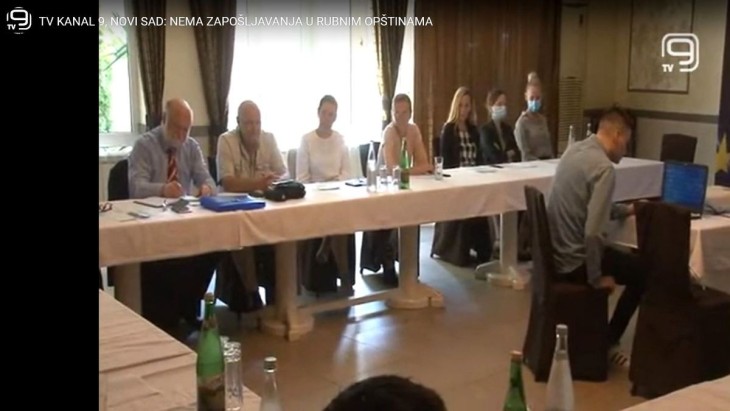Support to the Conference “Economic Incentives for Underdeveloped Municipalities and the Position of National Minorities”

The Center for Regionalism, with the support of the Open Society Foundation, on 19 June 2020, organised a Conference “Economic Incentives for Underdeveloped Municipalities and the Position of National Minorities”.
The Conference was also attended by representatives of the “European Affairs” Fund of AP Vojvodina, who, in talks with representatives of national councils, pointed out the importance of writing EU projects and applying for EU funds in order to attract significant funds when it comes to financial incentives for underdeveloped municipalities and the position of minorities.
This topic was chosen having in mind the fact that a number of members of certain minorities live in underdeveloped parts of Serbia, which significantly reflects on the economic position of their members and on demographic trends within these communities. The project was realized by research in the municipalities of Nova Varoš, Tutin, Bujanovac, Vlasotince, Prokuplje, Dimitrovgrad, Negotin, Žagubica, Alibunar and Plandište.
The target groups were members of the Albanian, Bosniak, Bulgarian, Vlach, Romanian, Slovak, Macedonian and Hungarian communities. The research included 10 municipalities with a total of 247,000 inhabitants, of which about 63,000 are members of minority communities. The goal of the project was achieved by processing 10 basic indicators that show the socio-economic position of all citizens in the mentioned municipalities, and thus members of national communities.
Conducting a comprehensive dialogue on this topic is extremely important at a time when models of the position and status of minority communities are being formed, that is, formatted, within the accession negotiations between Serbia and the EU. The results of such a dialogue contribute to raising the overall democratic capacities of the state of Serbia, strengthen the cohesion structure of the majority people and minority communities and represent one of the basic conditions for security and stability in the region.
The significance of this dialogue is also in the fact that it includes representatives of state bodies, experts and representatives of national minorities, as well as embassies of the countries of the native people.





